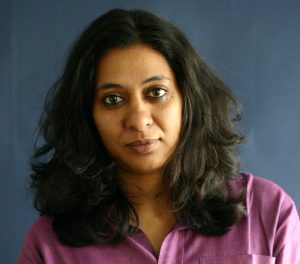 The Sri Lankan Government’s ongoing abuses are undermining the purported goals of its newly proposed Truth and Reconciliation Commission (TRC), Human Rights Watch said in a report published today.
The Sri Lankan Government’s ongoing abuses are undermining the purported goals of its newly proposed Truth and Reconciliation Commission (TRC), Human Rights Watch said in a report published today.
Victims of past violations, their families, and human rights defenders have rejected the government’s initiative because the government has not consulted them, ignores evidence gathered by past commissions, and it exposes them to security force abuses and retraumatization if they participate. The 39-page report, “‘If We Raise Our Voice They Arrest Us’: Sri Lanka’s Proposed Truth and Reconciliation Commission,” documents abusive security force surveillance and intimidation of activists and campaigners from minority Tamil families of those who “disappeared” during Sri Lanka’s civil war. The authorities are using draconian counterterrorism laws to silence dissenting voices, including those calling for truth and accountability, while government-backed land grabs target Tamil and Muslim communities and their places of worship. “Sri Lanka profoundly needs truth and accountability, but a credible process requires the support of victims’ families and an end to government abuses against them and their communities,” said Meenakshi Ganguly, Deputy Asia Director at Human Rights Watch. “As the government’s own public statements suggest, this latest commission seems to be aimed at deflecting international pressure over continuing impunity, rather than revealing the fate of the disappeared or bringing those responsible to justice.” The report is based on over 80 interviews in Sri Lanka in June 2023, with relatives of victims of enforced disappearance, other victims of abuses, human rights defenders, activists, and journalists in Sri Lanka’s predominantly Tamil north and east. The government has not yet published details about the new commission, known as the National Unity and Reconciliation Commission. However, officials have sought the support of foreign governments, including South Africa, Switzerland, and Japan, as well as United Nations agencies. President Ranil Wickremesinghe’s office hopes the initiative will convince governments that there is no need for further scrutiny by the UN Human Rights Council in Geneva, which has established an expert team to collect evidence of international crimes committed in Sri Lanka for use in future prosecutions. The government’s targeting of those campaigning for justice undermines the credibility of the latest initiative, Human Rights Watch said. “Since my husband was abducted, I lost my freedom to do routine activities,” said a Tamil woman whose husband was forcibly disappeared in 2000. “Even if I go to the market or temple, they [security officers] ask, ‘Where are you going?’” Thousands of people “disappeared” in state custody during a left-wing insurgency in the late 1980s and a 26-year civil war between the government and successionist Liberation Tigers of Tamil Eelam, which ended in 2009. Government forces and rebel groups committed widespread atrocities including attacks on civilians, extrajudicial executions, torture, and the use of child soldiers. Successive governments in Sri Lanka have appointed commissions that collected extensive testimony from victims and witnesses but none led to genuine accountability. Instead, the authorities blocked the few criminal investigations into grave abuses that had made some progress in identifying those responsible and initiating prosecutions. Sri Lankan civil society and victims’ groups have issued several joint statements making it clear that while a process to deliver truth and justice is urgently needed, the current initiative lacks credibility and risks further harm to victims and their families. International law obligates governments to prosecute those responsible for war crimes and other serious international crimes by all sides. Failing to do so fuels further rights violations and undermines prospects for a durable peace, Human Rights Watch said. The UN high commissioner for human rights, Volker Türk, said in a report on Sri Lanka to the Human Rights Council dated September 6, that for any transitional justice process to succeed, “[t]ruth-seeking alone will not suffice. It must also be accompanied by a clear commitment to accountability and the political will to implement far-reaching change.” The government should make progress toward achieving credible justice by genuinely engaging with victims and affected communities. It should build on the evidence collected and recommendations made by past commissions. It should support a fair, credible investigation and prosecution of international crimes; immediately end ongoing abuses against past victims, their families, and human rights defenders and activists; and order state agencies to halt “land grabs” targeting minority communities. Foreign governments, including South Africa, Switzerland, and Japan, should not finance or otherwise endorse a truth and reconciliation commission that victims reject and puts them at risk, Human Rights Watch said. International partners, including the European Union, should continue to press the government to meet its commitments to end violations committed using counterterrorism laws. “President Wickremesinghe promotes ‘reconciliation’ while his government threatens the victims of past abuses and their families and minority communities,” Ganguly said. “Instead of creating yet another commission to give the appearance of progress, the government should take steps to gain credibility for a genuine truth and justice process that Sri Lanka desperately needs.” (Colombo Gazette)


Post a Comment